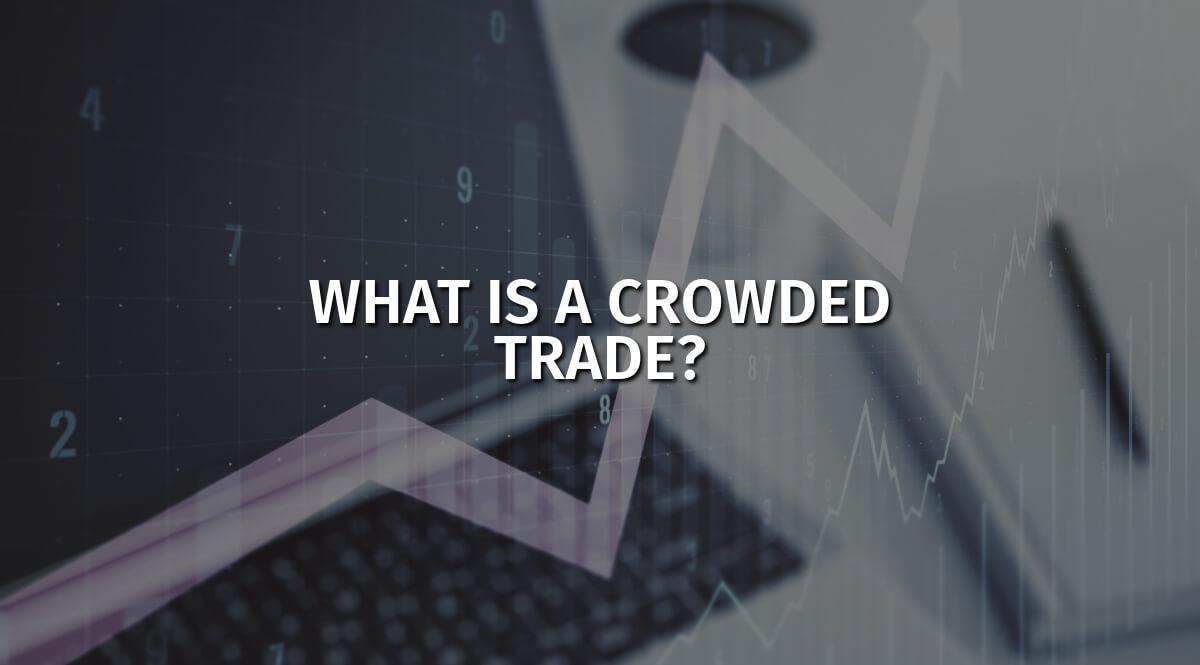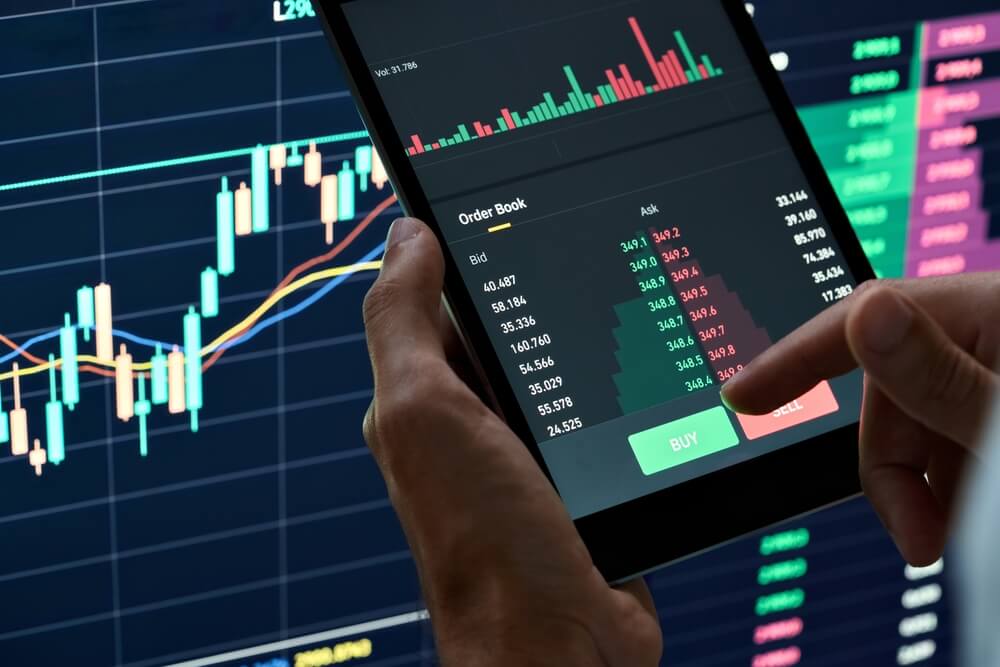
What is a crowded trade, and how does it work exactly?
Key Takeaways:
- Overcrowded trades arise when numerous investors converge on a single trading strategy, impacting asset prices.
- This phenomenon can lead to significant price instability and a heightened risk of losses.
- Excess short selling can compromise market liquidity, necessitating cautious investment strategies.
- Monitoring crowded short positions is crucial for informed decision-making and risk management.
- Successful trading involves mastering the technical aspects and emotional facets of navigating crowded market conditions.
Crowded trade happens when many investors or traders sell a lot of a market or asset. This can impact the stability of share prices. This is particularly true in the positive returns area. It increases the risk of losses, even when common risk factors are considered.
Having a lot of short positions can be risky, causing problems with market liquidity. This should be considered when making investment strategies and analyzing financial markets.
Short-selling risks become prominent when market participants bet against an asset’s price. When there is a high demand for short selling, it can create concerns about the ease of buying and selling stocks.
This is because if everyone is trying to close their positions, enough shares may not be available for trading.
What is important while making investment plans?
When making investment plans, considering crowded short positions is important. These can impact prices and increase the likelihood of sudden reversals. Financial market analysis should assess the current short interest.
This evaluation helps understand the overall market sentiment and potential risks. It also assists investors in making informed choices during changing conditions.
What is Crowded Positioning?
Crowded positioning, driven by trader sentiment, is important in stock market dynamics and can indicate market bubbles. Effective risk management, along with a deep understanding of trading psychology, is essential to navigate these dynamics.
Traders should understand that strong changes in feelings can cause problems, so they can make smart choices and avoid market problems.
When does it occur?
A crowded trade occurs when many traders with similar strategies or views impact share prices, potentially leading to losses. To measure this, we use a clustering metric that gauges the trading overlap among investors.
We’ve found that crowded trades can affect share price stability, particularly in the positive tail of returns, increasing the potential for losses, even after considering common risk factors.
In essence, reduced investor diversity can result in losing money due to the impact on share prices.
Navigating Crowded Short Trades: Insights and Risks

Crowded short trades can happen in various assets, like stocks, bonds, commodities, or currencies, often resulting in substantial losses for traders who still need to set stop-loss orders.
Understanding the Phenomenon
Imagine a room full of people watching a dormant but dangerous creature, like a rattlesnake or a giant spider. If it suddenly springs to life, chaos ensues as people rush to escape.
Similarly, crowded short trades lead to a rush by traders to cover positions, causing financial losses.
Additional Insights
- Many people sell their stocks quickly during a bad market and buy them back when the market improves. This behaviour causes stock prices to rise.
- Company-specific news, like takeovers, can abruptly end crowded short trades. For instance, Keurig Green Mountain surged in 2015 due to a takeover announcement, ending a crowded short trade.
- Metrics like short interest and the short interest ratio can help identify crowded shorts.
The rapid growth in these measures indicates a popular trade. But it’s important to consider the possible benefits compared to the chance of losing a lot when following a downward trend.
Crowded Shorts in Forex
In the foreign exchange market, borrowing in a foreign currency is akin to a short position in that currency. In 2015, Eastern Europeans had to pay more money to repay mortgage loans in Swiss francs. This was because Switzerland changed its exchange rate.
The crowded trade led to market liquidity issues, increased volatility, and significant price movements.
Spotting Crowded Positions: A Trader’s Guide
Detecting crowded positions in financial markets involves a careful blend of technical analysis and market sentiment indicators.
These positions occur when there is a strong feeling in a certain type of investment. This can cause prices to stay high or low for a long time. It also makes the market more unpredictable.
Successful traders recognize the importance of monitoring crowded positions, as they can present both profit opportunities and significant risks.
In Jan 2021, GameStop showed how regular investors can raise stock prices to bet against stocks heavily. This action had negative consequences for certain hedge funds.
The Nasdaq’s experience demonstrates the risks of excessive optimism towards an asset class. In this case, crowded long positions resulted in a significant market decline.
Identifying crowded positions is important in trading and investing. Technical and market sentiment analysis help navigate financial markets effectively.
Navigating Crowded Trades: Insights and Opportunities

Navigating crowded trades necessitates assessing market conditions and being vigilant about potential market bubble indicators. Here’s a concise overview of lessons and opportunities:
Market Conditions
Assess the current market conditions, including sentiment and price dynamics, to spot potential bubbles and gauge risk.
Market Price Dynamics
Understand how market prices behave, especially in assets with rapid price changes.
Bubble Indicators
Watch for excessive optimism or pessimism in crowded positions, which often precede volatility.
Caution and Avoidance
Prudent consideration of avoiding crowded trades takes center stage when prioritizing risk management. It’s essential to bear in mind that timing reversals in such situations can be highly unpredictable.
Opting for a cautious approach here can help safeguard against unexpected market upheavals.
Position Sizing
When joining popular trades, be careful and only invest amounts that match your personal risk tolerance.
The potential for rapid and unforeseeable movements necessitates a careful and calculated approach to position sizing.
Contrarian Strategies
Should one opt for contrarian strategies amidst crowded trades, it’s crucial to approach them with caution, fully prepared for the emotional challenges that can arise.
Contrarian approaches often entail going against prevailing market sentiment, requiring emotional resilience to withstand the potential pressures and uncertainties.
Adaptive Strategies
Creating flexible plans for changing markets and potential bubbles is crucial for success in a competitive trading environment.
Flexibility and the ability to adjust strategies as market dynamics shift become instrumental in achieving success.
Emotional Resilience
Cultivating emotional resilience is a fundamental aspect of effectively navigating the emotional demands posed by crowded trades.
This resilience hinges on a comprehensive understanding of market conditions, being attuned to bubble indicators, and adhering to prudent risk management practices.
No matter how you approach it, understanding and controlling your emotions while trading is crucial in unpredictable markets.
What constitutes an overcrowded trade?

Usually, it happens when a trading strategy becomes very popular and attracts many investors who all take the same position.
These investors gather large numbers to buy too many assets when they feel very positive. This influx of participants can lead to imbalances in the market, potentially causing significant price fluctuations.
What is the significance of a stock being overcrowded?
Crowded short positions denote a substantial accumulation of short bets on a particular stock, currency, or asset. These highly populated short positions are exceptionally vulnerable to a short squeeze should the market sentiment shift.
Short interest is the primary indicator for spotting overcrowded shorts, and traders should exercise caution before joining the crowd.
Bottom Line
Grasping the concept of crowded trades holds paramount importance for both traders and investors. Remember that overcrowding affects prices and risk during market volatility.
It also involves considering market liquidity, particularly when engaging in short selling. Moreover, a crucial aspect is the continual monitoring and analysis of crowded positions, which produces accurate and unbiased content for informed decision-making.
Additionally, highlighting effective risk management in trading practices and nurturing emotional resilience becomes pivotal when navigating the ever-evolving landscape of dynamic markets.




